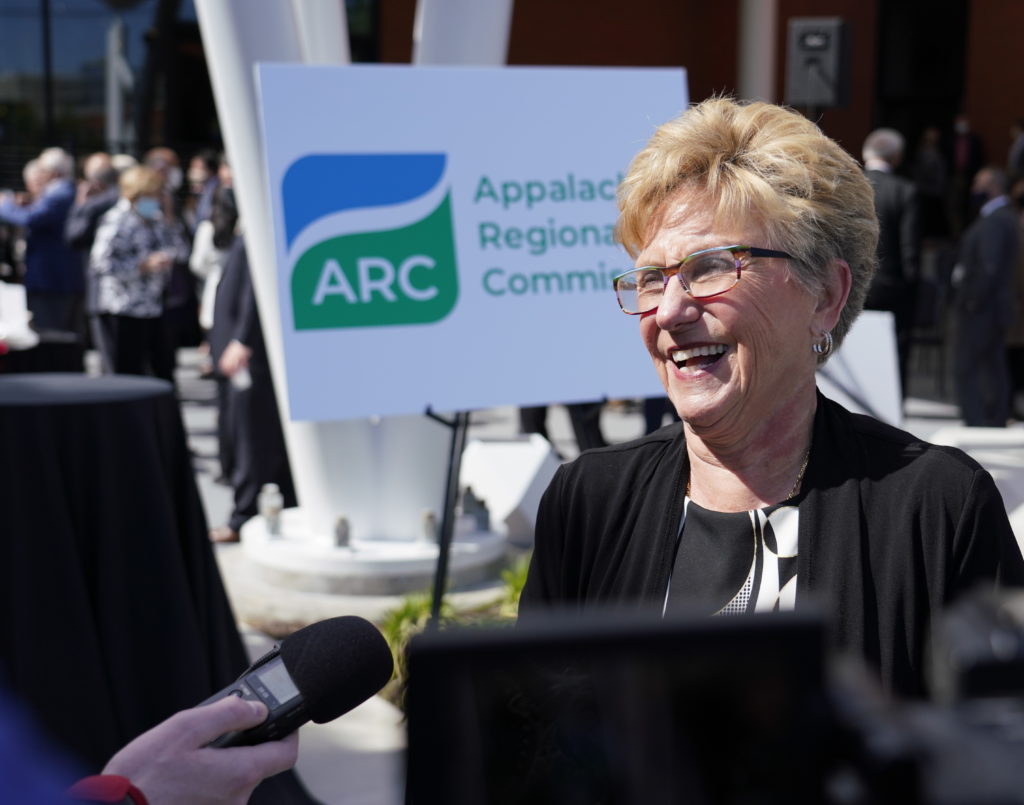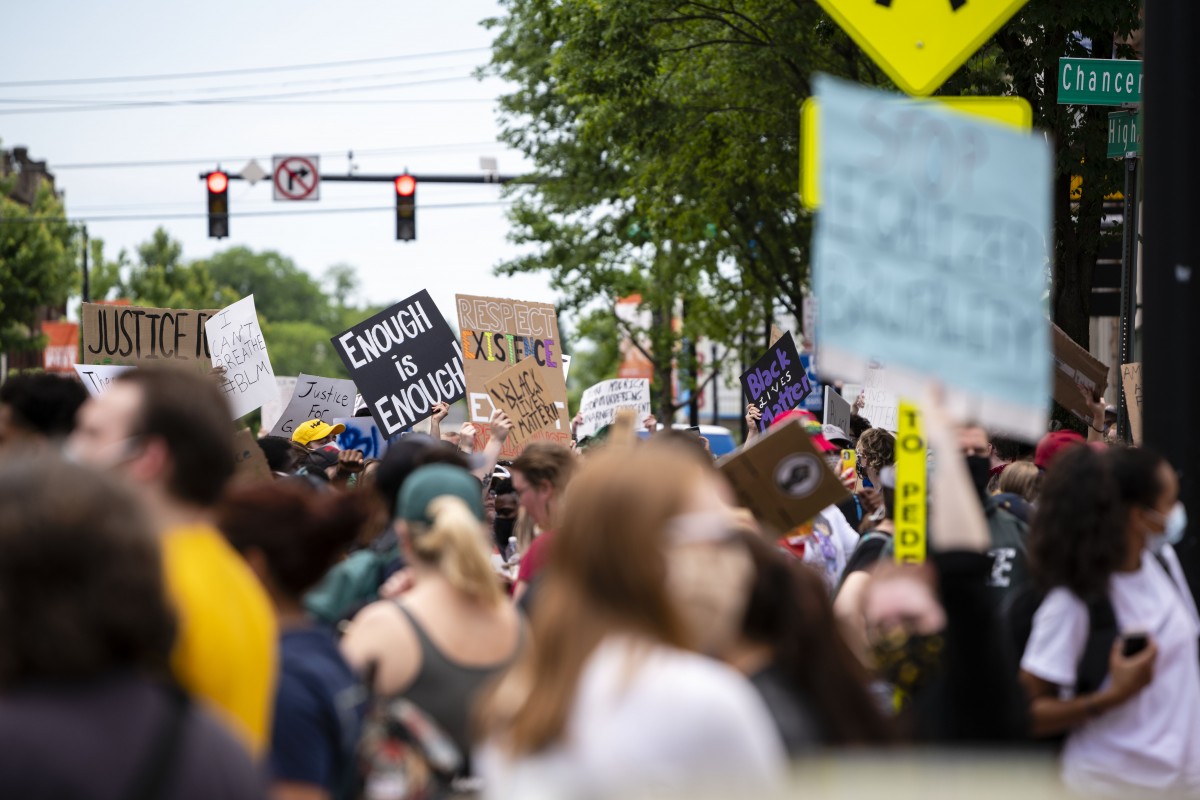It has always been Lillian Amanaka’s dream to work with patients at the end of life, she says, her accent is easily noticeable, her voice soft and her words precise.
Lillian is in her second year working at Hospice of the Panhandle in West Virginia’s eastern panhandle. She started as a primary nurse, working directly with patients in end-of-life care, but in July 2020, shifted to a new position in the organization. The shift came after she dealt with her mother being diagnosed with lung cancer. In the midst of a global pandemic, Lillian took time off of work to help care for her. The challenge, however, was that her mother still lived in Lillian’s native Kenya.
“I have first-hand experience during this pandemic in that people are not able to be with their loved ones when they need to be,” she says. “I was under the impression that I was going to be able to travel as much as I needed, but, with the pandemic, all flights were cancelled. So I could not go anywhere.”
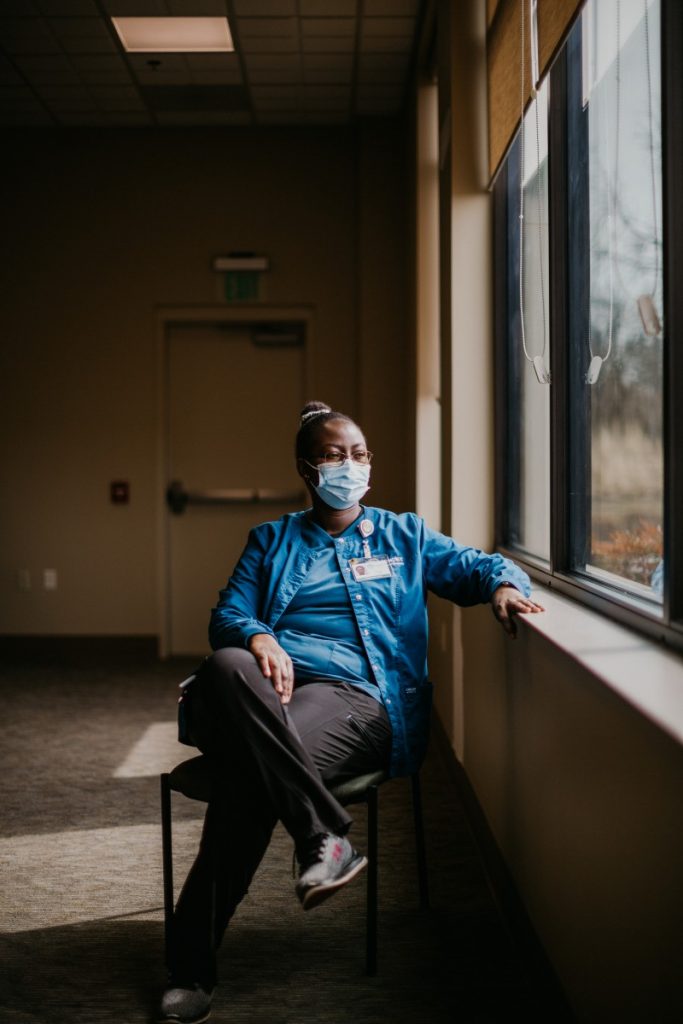
Eventually, Lillian was able to make the trip, thanks in part to her employer’s flexibility in giving her the time she needed. “When we talk about humanizing healthcare, Hospice has been very human in the fact that, when my mother was diagnosed with cancer, they let me travel as much as I could.”
“When I came back to work, it was really hard being a primary nurse,” Lillian says. “Hospice was helpful in working with me, getting me to a comfortable level.” She took a new job as an access nurse last summer instead (basically the admissions department) and now helps Hospice patients enroll in the care they need.
“I meet patients at their point of need. If something comes up, I go out and deal with that situation in that moment.”
Over the past year, flexibility has been a key for Lillian as a health care worker during a global pandemic – both at home and at work. “My son is 16 and my daughter is 9. Everything was a challenge. My kids wanted to be in school with their friends. It was a big adjustment for them. My young one was hit pretty hard.”
The main challenge Lillian faced was shifting her focus toward her kids while still maintaining her job. She adjusted her work schedule so she could be at home with them as much as possible, but says the job itself was still challenging.
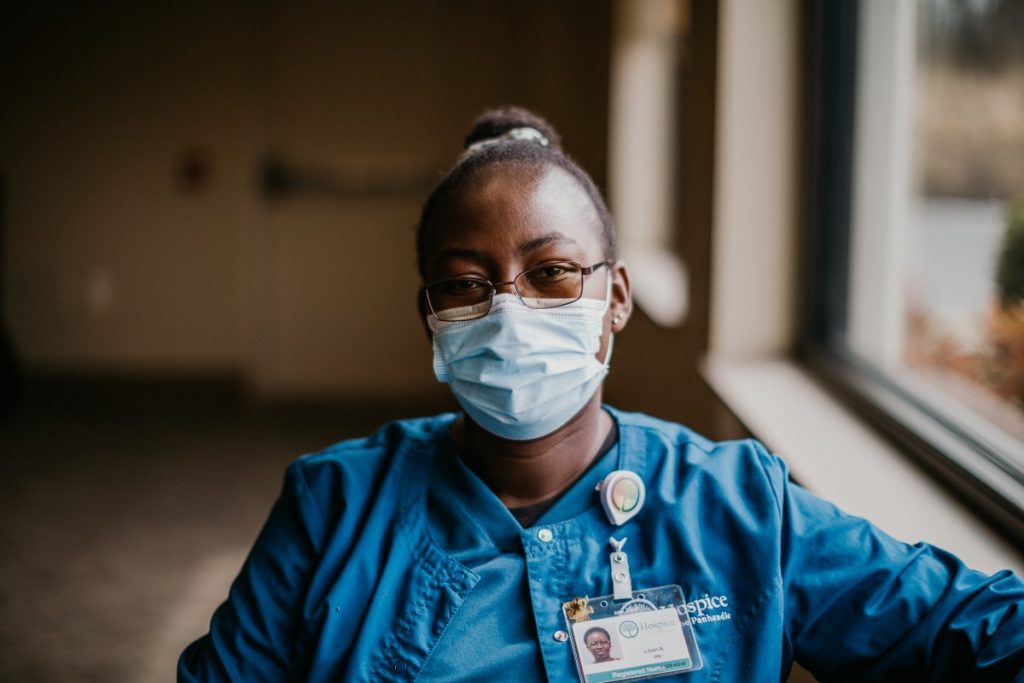
“As a nurse, when you are with your patients, you want to put them first – even though you could be in the line of danger. It is the duty of a nurse to serve the patient no matter what,” she says. “As much as we were doing the best for our patients, there was always the risk you could be exposed to COVID. Everything was a challenge.”
“In Kenya, we find our older generation to be precious. I have come across many of our patients who say, ‘I am old. I don’t matter.’ I make a point of telling them that where I come from in Kenya, this is a golden age. The older someone is, the more precious they are – because of their wealth of knowledge.
“So making these patients feel even more special is very important to me,” Lillian says. “This is the human touch that could get lost in a pandemic. I think we have learned we can make our way even when things seem impossible.”
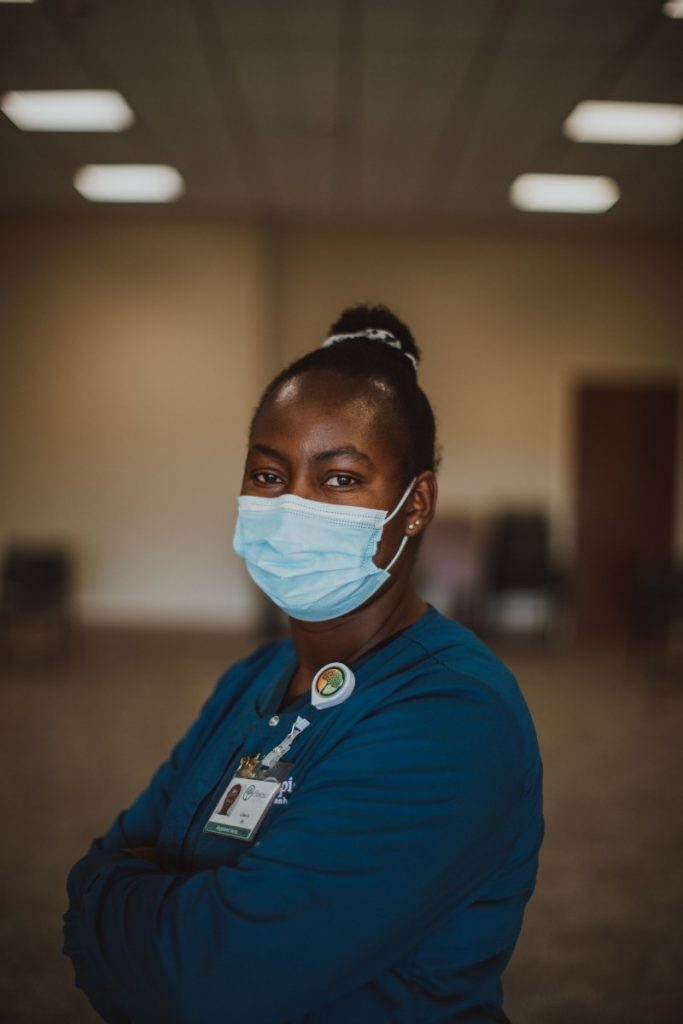
Healthcare is Human is an independent podcast produced by Ryan McCarthy, Molly Humphreys and Kym Mattioli out of Martinsburg, West Virginia. Listen to their latest episodes on their Soundcloud or keep up with their work on Facebook.


